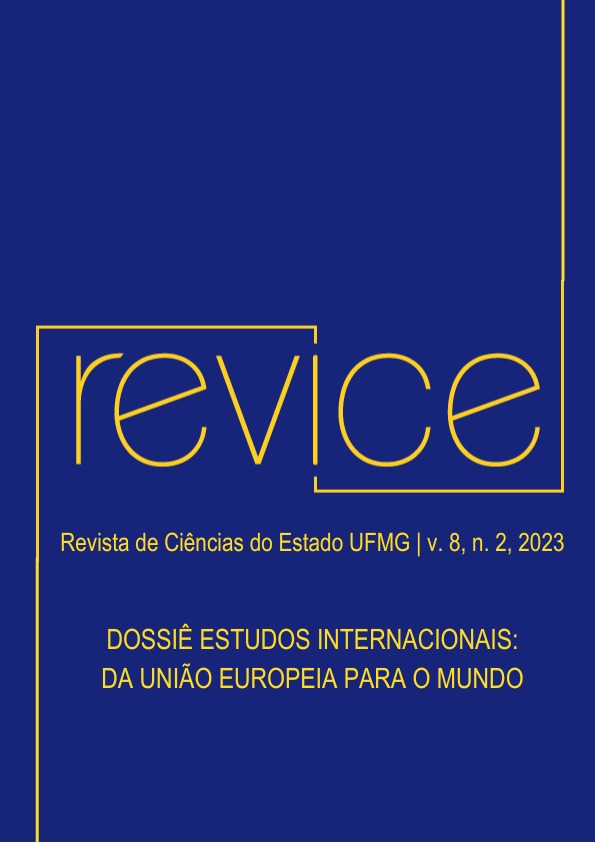The common good as the backbone of Plato's Laws
DOI:
https://doi.org/10.35699/2525-8036.2023.45907Keywords:
Commom, Well, Laws, PlatoAbstract
Plato considered the common good as a unifying instance of community life in the polis and, therefore, as a fundamental objective towards which laws, the State and citizens should converge. The community sense in the search for the common good in Plato’s Laws is decisively opposed to the atomization of contemporary life. The objective of this article is to investigate how Plato mobilizes the common good as the main purpose of the set of laws (nomoi) of the polis. To this end, it begins with a brief introduction to the normative framework in the Dialogue As Leis and its teleological relationship with the common good. It then unravels two mechanisms involved in the construction of the common good: education and state regulation of the distribution of wealth. Afterwards, it seeks to summarize the main aspects of what constitutes the common good for Plato. Finally, it concludes with the need to rescue the notion of common good as a prominent philosophical-political category for the construction of a new society.
Downloads
References
ARAÚJO, Carolina. Liberdade de indiferença e autoridade individual: a República de Platão sobre a democracia. In: SEBASTIANI, Breno Battistinet (coord.). A Poiesis da Democracia. Coimbra: Imprensa da Universidade de Coimbra, 2019.
ARAÚJO, Carolina. Philosopher-kings: a Communitarian Political Project. In: REID, Heather L; TANASI, Davide. Philosopher Kings and Tragic Heroes: Essays on Images and Ideas from Western Greece. Fonte Aretusa: Parnassos Press, 2016.
DARDOT, Piérre; LAVAL, Christian. A Nova Razão do Mundo: ensaio sobre a sociedade neoliberal. 1ª ed. São Paulo: Boitempo, 2016.
DE COULANGES, Fustel. A Cidade Antiga: estudos sobre o culto, o direito e as instituições da Grécia e de Roma. Trad. Roberto Leal Ferreira. São Paulo: Martin Claret, 2009.
DOISTOIÉVSKI, Fiodor. Crime e Castigo. Trad. Rubens Figueiredo. São Paulo: Ed. Todavia, 2019.
JAEGER, Werner. Paidéia, a Formação do Homem Grego. São Paulo: Martins Fontes, 1995.
PLATÃO. A República. Trad. Edson Bini. 3ª ed. São Paulo: Edipro, 2019.
PLATÃO. As Leis. Trad. Edson Bini. 3ª ed. São Paulo: Edipro, 2021.
WOOD, Ellen. Democracia contra Capitalismo: a renovação do materialismo histórico. São Paulo: Boitempo, 2011.
Downloads
Published
How to Cite
Issue
Section
License
Copyright (c) 2023 Gustavo Livio

This work is licensed under a Creative Commons Attribution-NonCommercial-ShareAlike 4.0 International License.
1. Os conteúdos dos trabalhos são de exclusiva responsabilidade de seu autor.
2. É permitida a reprodução total ou parcial dos trabalhos publicados na Revista, desde que citada a fonte.
3. Ao submeterem seus trabalhos à Revista os autores certificam que os mesmos são de autoria própria e inéditos (não publicados em qualquer meio digital ou impresso).
4. Os direitos autorais dos artigos publicados na Revista são do autor, com direitos de primeira publicação reservados para este periódico.
5. Para fins de divulgação, a Revista poderá replicar os trabalhos publicados nesta revista em outros meios de comunicação como, por exemplo, redes sociais (Facebook, Academia.Edu, etc).
6. A Revista é de acesso público, portanto, os autores que submetem trabalhos concordam que os mesmos são de uso gratuito.
7. Constatando qualquer ilegalidade, fraude, ou outra atitude que coloque em dúvida a lisura da publicação, em especial a prática de plágio, o trabalho estará automaticamente rejeitado.
8. Caso o trabalho já tenha sido publicado, será imediatamente retirado da base da revista, sendo proibida sua posterior citação vinculada a ela e, no número seguinte em que ocorreu a publicação, será comunicado o cancelamento da referida publicação. Em caso de deflagração do procedimento para a retratação do trabalho, os autores serão previamente informados, sendo-lhe garantido o direito à ampla defesa.
9. Os dados pessoais fornecidos pelos autores serão utilizados exclusivamente para os serviços prestados por essa publicação, não sendo disponibilizados para outras finalidades ou a terceiros.


